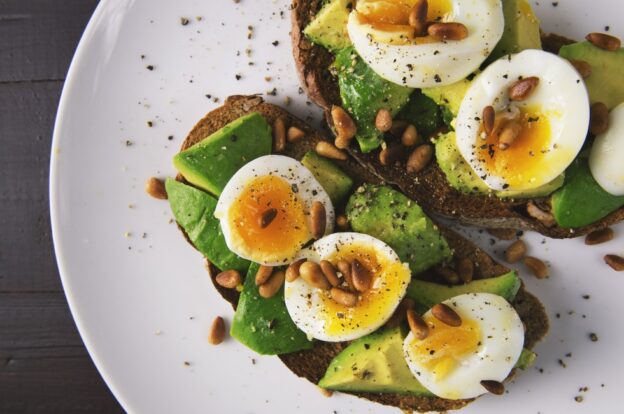We all know that a healthy diet is critical for weight management, organ function, and just overall good health. But a lot of people don’t realize just how important proper nutrition is for good mental health as well. Maybe you’ve noticed that you feel sluggish or unmotivated throughout the day. Or maybe you’ve been struggling to get out of bed or have been in a consistently bad mood without really knowing why.
Take a second and consider what you’ve been putting in your body. If you’ve been eating a lot of processed foods, fast food, or foods that are high in sugar, this could be the reason you’re feeling so lousy. The good news is that you can actually eat your way to better health. It doesn’t have to be hard or expensive. It doesn’t even have to be very time-consuming; you just have to be consistent with it.
Vitamins and Nutrients That Are Critical for Mental Health
There are certain vitamins and nutrients that affect your mental health. If you become deficient in them, you may notice a decrease in your mood. When you learn what these vitamins and nutrients are, you can look for foods that contain a high amount of them and incorporate them into your everyday diet.
Vitamin D
The first thing you want to prioritize is vitamin D. Did you know that people who are deficient in vitamin D can actually be more prone to depression? We get vitamin D naturally from the sun, but if you’re not able to get regular sun exposure, it can really affect your mood. This is why people who live or work in environments without windows may be more likely to experience sadness and depression.
In addition, vitamin D deficiency can be a huge predominating factor in the development of seasonal affective disorder (SAD). People often experience this type of disorder in the winter months, when the days are short, the weather is dreary, and there is much less sunlight. Some symptoms of SAD include lethargy, trouble finding motivation, sadness, hopelessness, and depression.
Vitamin D supplements are often recommended for those who struggle with this disorder. But you can also up your vitamin D intake through the foods you eat. Some examples of foods that are high in vitamin D include:
- Salmon
- Orange juice
- Tuna
- Dairy or fortified plant milk
- Egg yolks
- Sardines
- Cereal and oatmeal
Folate
Another vitamin critical for good mental health is folate. You’ve probably heard about how folic acid is very important for women who are pregnant. In fact, most women will take daily folic acid supplements, particularly at the beginning of their pregnancy. Many people don’t realize that folate can play a major role in combating mental health problems like depression and anxiety. Not to mention, folate plays a critical role in red blood cell production, liver function, and healthy hair and skin.
To incorporate more folate into your diet, try to include more of the following foods:
- Spinach
- Kale
- Fruit
- Whole grains
- Beans
Omega 3 Acids
You should also include Omega 3 fatty acids into your diet for good mental health. These are known to help stabilize your mood and ward off depression. It is even believed that Omega 3 acids can help increase the effectiveness of prescription antidepressants. They also play a very important role in heart health and could potentially help prevent cancer.
To incorporate more Omega 3 fatty acids into your diet, consider including the following foods:
- Leafy greens
- Walnuts
- Olive oil
- Flaxseed oil
- Chia seeds
- Mackeral
- Sardines
Making Time for Healthy Eating
You might be thinking to yourself, “I just don’t have time for healthy eating.” Stopping by a fast food restaurant, eating dinner from a vending machine, or gobbling a processed meal may seem like your only options. Perhaps, you’re skipping meals altogether.
Eating healthy doesn’t have to be difficult; it just requires some planning. This is where meal prep comes in handy. Before the start of a new week, figure out what healthy recipes you want to prepare. After doing this, make a list of all the ingredients you may need and go shopping for them. Try to purchase only the items that are on your list, and don’t give in to tempting but unhealthy snacks.
You can then make a big batch of healthy breakfasts, lunches, and dinners that will last you through the week. You can portion them out into containers that you can then place into your fridge and grab as needed. These are meals that you can eat from home or throw in your bag to take with you if you’re short on time.
Meal prepping may seem like a lot of work, but at the end of the week, you will have saved a lot of time and prevented so much stress. Most importantly, you’ll be eating nutrition-packed meals.
Eating healthy, well-balanced, and nutritious meals is not only important for your physical health but for your mental health as well. It can help to prevent anxiety and depression, give you the energy and motivation you need to get through your day, and boost your mood. Eating heavily processed foods, fatty foods, or foods high in sugar can actually take a toll on your mental health. You want to be incorporating foods that are high in Omega 3 fatty acids, vitamin D, and folate. Prepping a big batch of healthy meals to last the week can help. If you are struggling with substance misuse, our team at The Ho Tai Way can help. Call (714) 581-3974 today.









